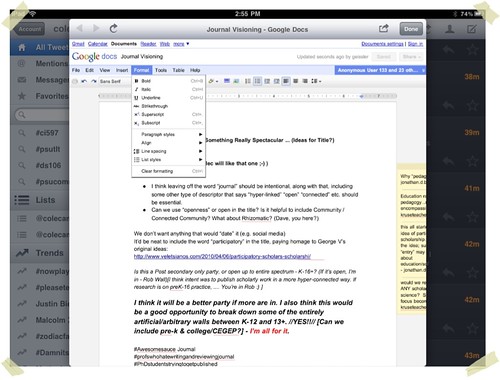One of my favorite people on the planet, Dr. Richard Schwier, has just released his new free eBook titled Connections: Virtual Learning Communities. Read about the book here, or download directly from this link. The book is in .epub format, so if you are unfamiliar with how to handle that format, see this resource.
A little bit about the book:
This ebook pulls together the big ideas from our work for educators who might actually be able to put what we have learned to good use. That’s what this book is about—making sense of online learning communities. In a sense it isn’t original; it is rewritten out of material the VLC Research Lab already created along with a healthy dose of my own speculations. So it is selective rather than comprehensive. It doesn’t attempt to pull together all of the excellent work and writing about online learning.
This is also an experiment with this digital form of a book. The ebook format offers a number of fresh affordances and imposes some really difficult layout restrictions. The book includes a number of links to resources and examples. Every chapter has a video introduction that you can jump to if you want to get the big idea without combing through an entire chapter to dig it out. And by the time I release the next edition, I hope to discover a reasonable way to embed videos into the document, instead of having to link to external files.
Thank you Rick for pushing the boundaries on academic writing and sharing this work for free and in the open. I’ve downloaded it to my iPad, and I can’t wait to read it.


